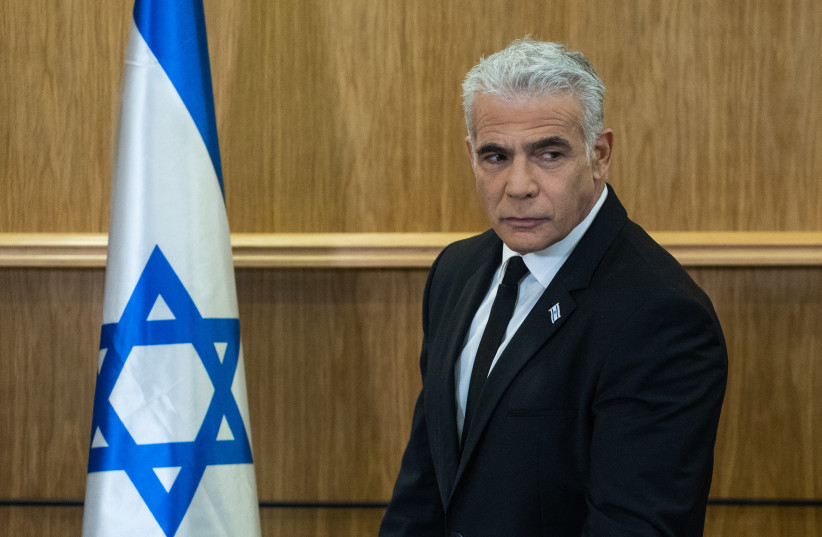Jean-Francois de Gondi, a French statesman and writer, was an active participant in the Fronde rebellion in which the French people rebelled against the Cardinal, and later on he served as a diplomat on behalf of King Louis XIV. Many of his letters and observations were published posthumously, including this line, “Pretentiousness is not the best tone to conduct negotiations.”
Another quote attributed to him sadly resonates with the current situation in Israeli society: “It is more difficult to get along with our friends than to act against our opponents.” It seems to me that these two quotes can serve as a kind of compass, attempting to achieve a dialogue on the legal reform.
We need to put the cards out on the table. After four inconclusive elections, in November 2022 a clear right-wing government was elected. While I acknowledge the claims that the popular vote was not nearly so decisive, our democratic system is built on a parliamentary foundation, through which we elected Prime Minister Benjamin Netanyahu. Former prime minister Yair Lapid became the chairman of the opposition and is all but campaigning to return to the Prime Minister’s Office.
This aspiration is legitimate and even necessary in a democratic country. However, this position, which can be good for the system, must not become one that prevents the government from functioning. Lapid was the chairman of the opposition in the past. He conducted himself responsibly, as a statesman, and even patriotically. I believe that he continues to contain these qualities.
Lapid's desire to be prime minister again is compromised
It seems to me that Lapid’s desire to return to the prime ministership is being compromised by the tone of many Yesh Atid voters, whose behavior is in stark contrast to previous occasions when protests against the government were conducted in a mature and responsible manner.

Many Lapid voters were disgusted by the corruption of former prime minister Ehud Olmert. They were also outraged by the behavior of former IDF chief of staff Dan Halutz when he chose to sell stocks – moments after the war began in 2006 – and called for him to resign.
Among the leaders of the demonstrations against the government are former defense minister Moshe Ya’alon, Tel Aviv Mayor Ron Huldai and former minister Dan Meridor – none of whom were not elected to the Knesset in November – unlike Lapid. He was elected because of the values he represented. Now it appears that he has chosen to “lead from behind” the agitators to satisfy his base.
THIS SITUATION makes it extremely difficult for him to be open to constructive dialogue with his opponents who advocate for the judicial reform. In the spirit of the 17th-century cleric de Gondi, Lapid has also expressed “It is more difficult to get along with our friends than to act against our opponents.”
Both he and MK Benny Gantz are fearful of this, as are Netanyahu, Justice Minister Yariv Levin and Constitution, Law and Justice Committee chairman Simcha Rothman. The agitation of the opposition threatens Lapid’s leadership and to a certain extent paralyzes him.
We are at the point where those who support and those who oppose the reform are prepared to dialogue as they know the key points worthy of discussion. Provided the parties can listen to each other and put aside their differences, they are not that far from achieving their goal, in contrast to de Gondi’s statement.
As a condition for resuming negotiations with the Palestinians, Israel demands that Palestinian Authority head Mahmoud Abbas recognize Israel as a Jewish state. The Palestinians, for their part, set other conditions. Did setting these conditions before entering into negotiations advance us Israelis and Palestinians in our process for peace?
If only there were fewer preconditions and a little more desire to discuss and listen we could probably have made progress. In a typical divorce process, the couple is obligated to try mediation. The first step is to bring the parties into a shared room. They cannot make any stipulation, such as “I will not go in without her giving up on alimony.” The process recognizes that strong emotions, apprehension and fear, merely lead to damage and mediation can help ease the process.
Similarly, it is in the interest of the state to have the opposing parties enter the room, and for the president to serve as mediator by listening to them, raising questions, and helping them arrive at solutions. This must be done without preconditions but with a clear deadline. Without a clear deadline for progress in the legislation, we will not come to any conclusions.
Those on the Right do not want the decisions to be reversed when a change of government inevitably occurs. On the other hand, the Left does not want to create legislative chaos. In order to take Israel from here to a better place, each side must remember that we are brothers. This is not easy because each side comes with its own baggage.
For effective communication, there must be no preconditions. That is achieved only through a willingness to discuss and listen, and a deadline for decisions to be finalized.
The writer is the mayor of Efrat.
